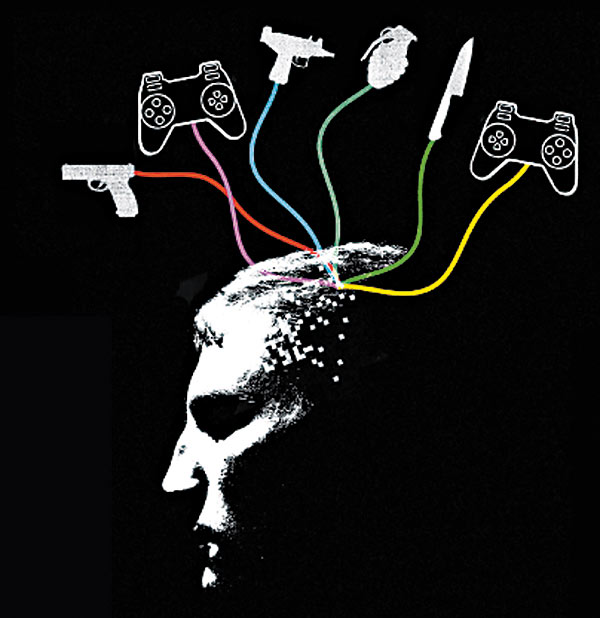
New research has begun to clarify what can and cannot be said about the effects of violent gaming on young people.
 |
|
Craig A. Anderson, a psychologist at Iowa State University, believes violence in media is only one factor in mass shootings. Mark Kegans for The New York Times |
Playing video games does stir hostile urges and mildly aggressive behavior in the short term. Moreover, youngsters who develop a gaming habit can become slightly more aggressive, at least over a year or two.
Yet it is not at all clear whether, over longer periods, such a habit increases the likelihood that a person will commit a violent crime, much less a massacre like the one in Connecticut in December that left 20 children dead.
"I don't know that a psychological study can ever answer that question definitively," said Michael R. Ward, an economist at the University of Texas, Arlington. "We are left to glean what we can from the data and research."
The research falls into three categories: short-term laboratory experiments; longer-term studies, often based in schools; and correlation studies - between playing time and aggression or between video game sales and trends in violent crime.
In one recent study, Christopher Barlett, a psychologist at Iowa State University, led a research team that had 47 undergraduates play "Mortal Kombat: Deadly Alliance" for 15 minutes. Afterward, the team took various measures of arousal, both physical and psychological. It also tested whether the students would behave more aggressively, by having them dole out hot sauce to a fellow student who, they were told, did not like spicy food.
Compared with a group who had played a nonviolent video game, those who had played "Mortal Kombat" were more aggressive across the board. They gave fellow students significantly bigger portions of the hot sauce.
It is far harder to determine whether cumulative exposure leads to real-world hostility over the long term. In a report published last summer, psychologists at Brock University in Ontario found that longer periods of violent video game playing among high school students predicted a slightly higher number of incidents over time, such as fights with peers.
"None of these extreme acts, like a school shooting, occurs because of only one risk factor; there are many factors, including feeling socially isolated, being bullied, and so on," said Craig A. Anderson, a psychologist at Iowa State University. "I think it's clear that violent media is one factor; it's not the largest factor, but it's also not the smallest."
Most researchers agree with Dr. Anderson, but not all. Some studies have found that it is aggressive children who are the most likely to be drawn to violent video games. And some studies are not able to control for outside factors, like family situation or mood problems.
"This is a pool of research that, so far, has not been very well done," said Christopher J. Ferguson, associate professor of psychology and criminal justice at Texas A&M International University and a critic of the field whose own research has found no link. "I look at it and I can't say what it means."
Many psychologists argue that violent video games "socialize" children over time, prompting them to imitate the behavior of the game's characters. Children also imitate people in their lives - parents, friends, teachers, siblings - and one question that researchers have not yet answered is when, exactly, a habit is so consuming that its influence trumps the socializing effects of other major figures in a child's life.
The proliferation of violent video games has not coincided with spikes in youth violent crime. The number of violent youth offenders fell by more than half between 1994 and 2010, to 224 per 100,000 population, ac cording to United States government statistics, while video game sales have more than doubled since 1996.
In a working paper, Dr. Ward and two colleagues examined week-by-week sales data for violent video games, across a wide range of communities. Violence rates are seasonal, generally higher in summer than in winter; so are video game sales, which peak during the holidays.
"We found that higher rates of violent video game sales related to a decrease in crimes, and especially violent crimes," said Dr. Ward, whose co-authors were A. Scott Cunningham of Baylor University in Texas and Benjamin Engelstatter of the Center for European Economic Research in Mannheim, Germany.
"At the very least, parents should be aware of what's in the games their kids are playing," Dr. Anderson said, "and think of it from a socialization point of view: what kind of values, behavioral skills, and social scripts is the child learning?"
The New York Times







